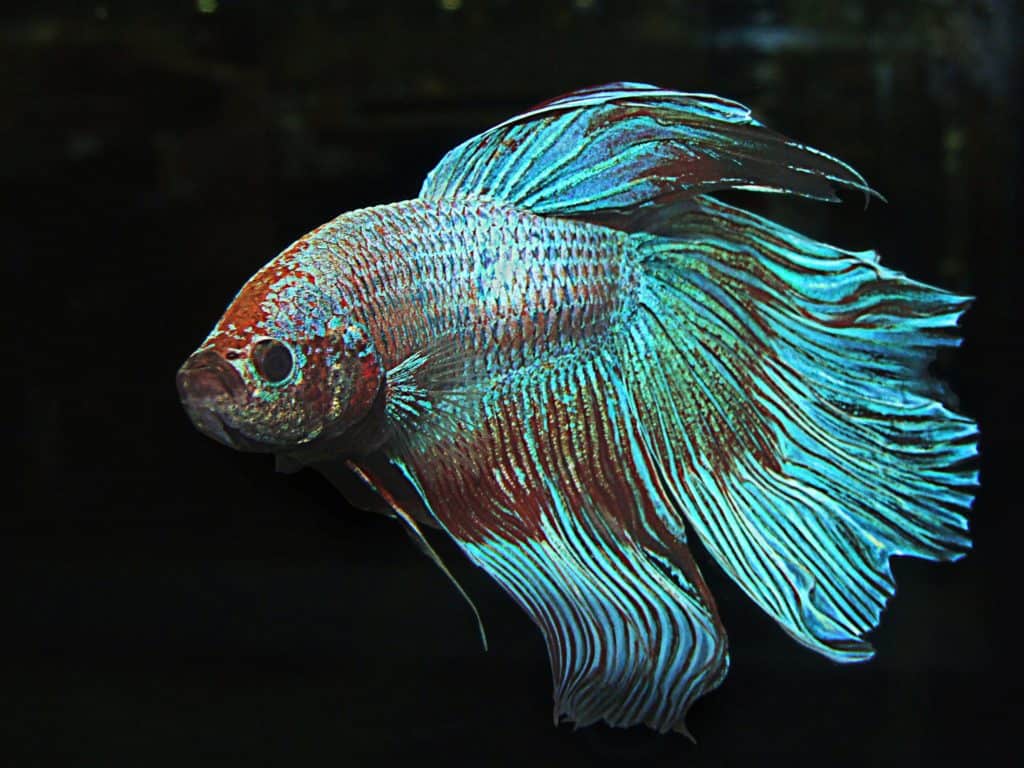It is recommended to feed a betta fish 2-3 small meals per day. It is important to feed them only as much as they can consume in 2 minutes and avoid overfeeding as it can lead to obesity and other health issues.
Know More About: how often do you feed a betta fish
Feeding Your Betta Fish: A Guide to Proper Nutrition
Giving your betta fish proper nutrition is crucial for its overall health and well-being. Betta fish are known for their vibrant colors and long, flowing fins, and a balanced diet plays a significant role in maintaining their stunning appearance. In this article, we will discuss how often you should feed your betta fish to ensure optimal health, growth, and longevity.
First, it’s important to understand the dietary needs of betta fish. In their natural habitat, betta fish are primarily insectivores, feeding on small organisms like insects, larvae, and zooplankton. Their diet is rich in protein, which is essential for their growth and development. To mimic their natural diet, it’s crucial to provide a well-rounded feed that meets their nutritional requirements.
One of the key factors in feeding your betta fish is the quantity of food you offer. Overfeeding can lead to obesity, bloating, constipation, and even swim bladder disorders. It’s recommended to feed your betta fish only what they can consume in about two minutes, two to three times a day. This portion size allows them to satisfy their hunger without overindulging.
The type of food you offer also plays a vital role in their nutrition. Betta fish thrive on a diversified diet, consisting of high-quality betta pellets, frozen or live foods, and occasional treats. Betta pellets are an excellent staple diet as they provide a good balance of protein and other essential nutrients. Look for pellets made explicitly for betta fish, as they are designed to meet their unique dietary requirements.
Frozen or live foods such as bloodworms, brine shrimp, and daphnia can be fed as occasional treats and provide variety to their daily diet. Live foods are particularly beneficial, as they stimulate the betta’s natural hunting instincts and offer additional nutrients. It’s important to note that while live foods are nutritious, they can also carry parasites or diseases. Therefore, it’s imperative to obtain them from reputable sources and properly quarantine them before feeding.
Water temperature also affects your betta fish’s metabolism and their feeding requirements. At higher temperatures, betta fish tend to have a faster metabolism, which means they may eat more and require more frequent feedings. Conversely, in cooler water, their metabolism slows down, and they may eat less. Thus, it’s crucial to consider the water temperature when determining the frequency of feedings.
It’s worth mentioning that betta fish can go for short periods without eating, which can be helpful when you’re away or unable to stick to a regular feeding schedule. If you plan to be away for a day or two, you can skip feeding your betta fish without causing harm. However, for longer trips, it’s advisable to seek a designated caretaker or fish feeder to ensure your betta does not go hungry.
Feeding your betta fish is not just about providing sustenance – it’s also an opportunity for interaction and observation. Take a moment each feeding session to observe your betta fish and check for any signs of illness or abnormal behavior. Frequent, small feedings allow you to closely monitor their appetite, health, and overall well-being.
In conclusion, understanding the feeding requirements of your betta fish is essential to maintaining its vitality and beauty. Providing a well-balanced diet through regular feedings of betta pellets, occasional treats of live or frozen foods, and monitoring feeding portions will help ensure your betta fish thrives. By nourishing your fish properly, you are contributing to its long and healthy life.
Key Takeaways from how often do you feed a betta fish
When it comes to feeding a betta fish, key takeaways include understanding their unique dietary needs and adhering to a proper feeding routine. Betta fish should typically be fed once or twice a day, with small portions that they can consume within two minutes. Overfeeding can lead to health issues like obesity, bloating, and water contamination. While bettas have a natural instinct to eat whenever food is available, maintaining a consistent feeding schedule and limiting the quantity of food is crucial. It is important to note that fasting bettas for one day each week can promote digestion and overall well-being. By appropriately managing their feeding frequency, betta fish can thrive in a healthy and balanced environment.
FAQs on how often do you feed a betta fish
Q1: How often do you feed a betta fish?
A1: Betta fish should be fed once or twice a day.
Q2: Can I feed my betta fish more than twice a day?
A2: No, overfeeding can lead to health issues, so it is best to stick to a regular feeding schedule.
Q3: How much food should I give my betta fish during each feeding?
A3: It is advisable to feed your betta fish an amount they can consume within 2-3 minutes.
Q4: Should I feed my betta fish on weekends or only on weekdays?
A4: Bettas should be fed daily, including weekends, as they require regular nutrition.
Q5: Can I skip a day of feeding my betta fish?
A5: While occasional fasting is healthy for betta fish, it is not recommended to skip feeding for more than one day at a time.
Q6: What should be the diet of a betta fish?
A6: Bettas are carnivorous and should primarily be fed a diet consisting of high-quality betta pellets or flakes. Live and frozen foods, such as bloodworms and brine shrimp, can be given as a treat.
Q7: Can I feed my betta fish treats?
A7: Yes, you can provide occasional treats of live or frozen foods like daphnia, tubifex worms, or mosquito larvae to offer variety and mental stimulation.
Q8: Do betta fish require any specific feeding schedule as they age?
A8: As bettas age, their metabolism slows down, so adjusting the quantity of food and feeding frequency may be necessary to prevent obesity or digestive issues.
Q9: Is it okay to leave food in the tank throughout the day for my betta fish to graze on?
A9: No, bettas should not be given access to food all day as it can lead to overeating and unhealthy weight gain. Uneaten food should be removed after a few minutes.
Q10: Can a betta fish survive if I go on vacation and can’t feed it for a few days?
A10: Yes, bettas can survive without food for a few days, but it is better to have someone trustworthy feed them or use automatic feeders to ensure their well-being.

